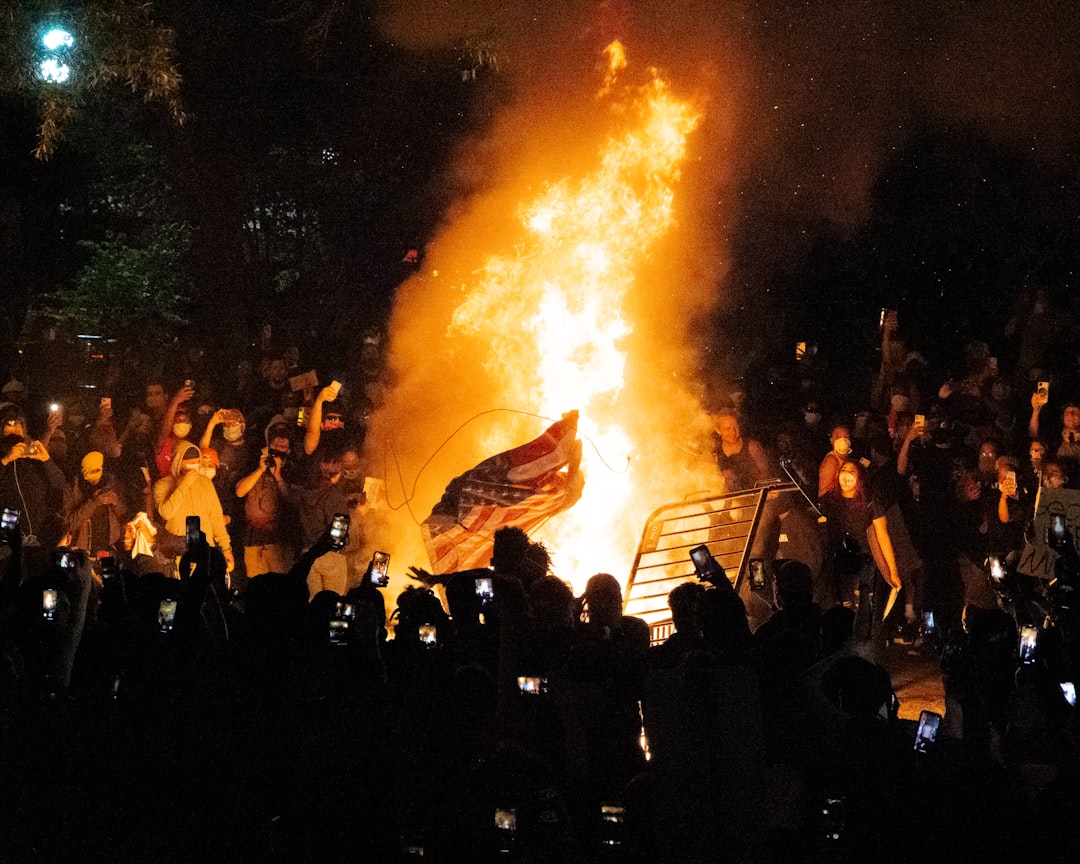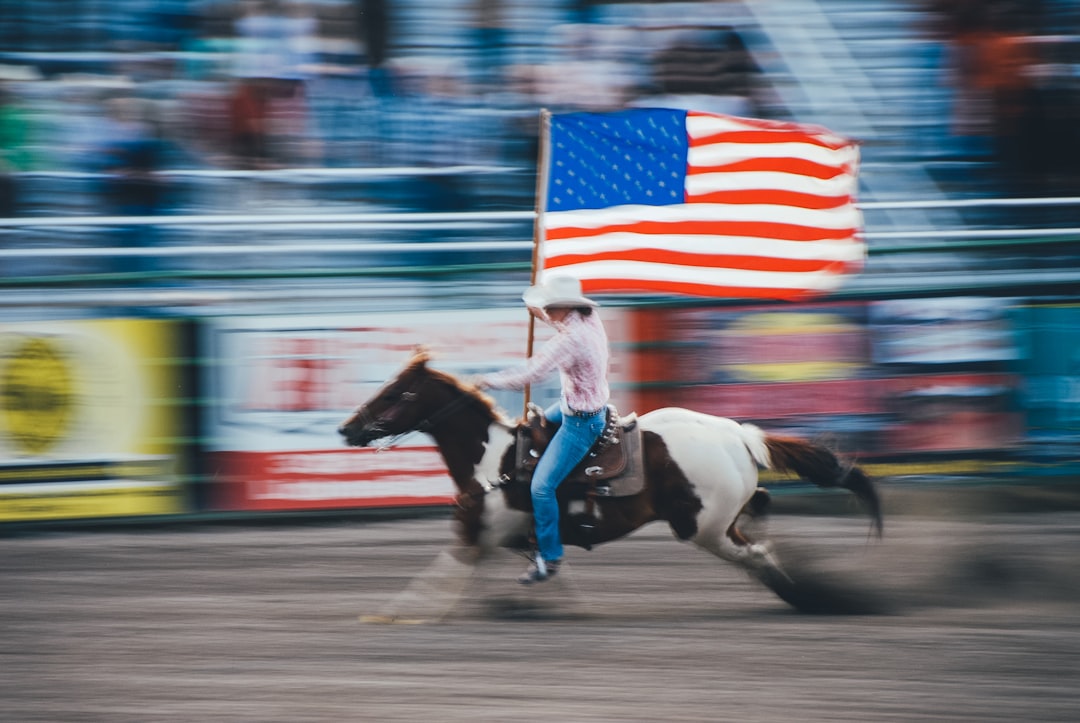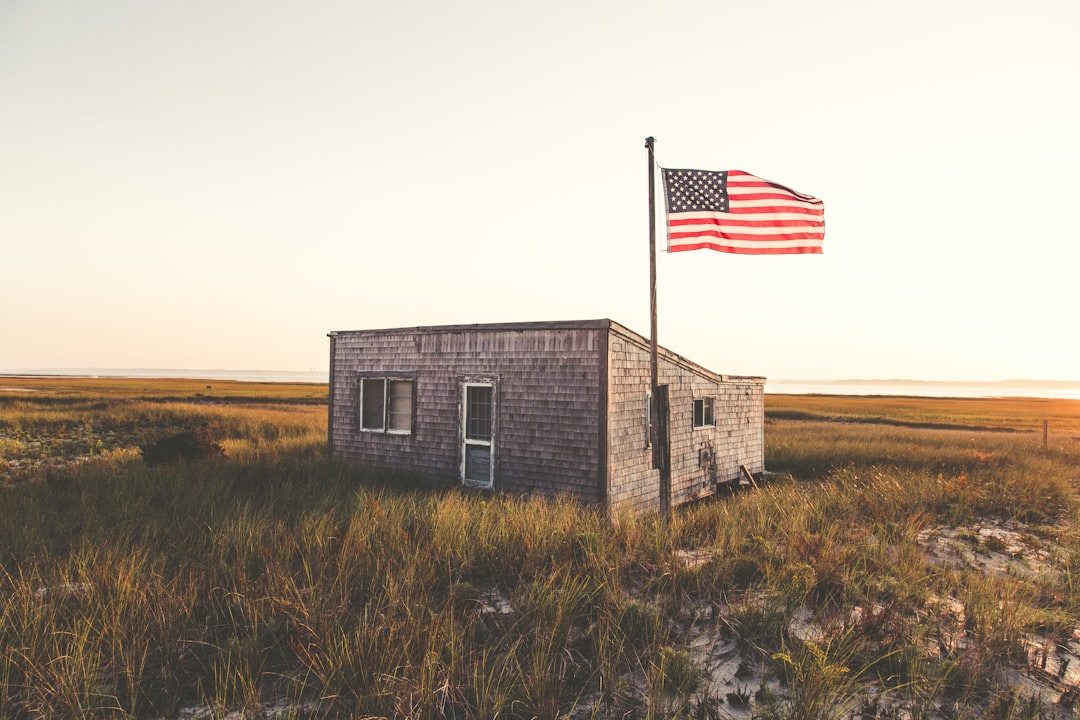These Colors Never Run
An anthem, a flag, and 247 years of Independence.
"[T]he composition consisting of the words and music known as the Star-Spangled Banner is the national anthem."
—36 U.S. Code § 301
Passed by Congress and signed into law by President Herbert Hoover on March 4, 1931.
It was a perfect day for baseball. A bright afternoon on April 25, 1976, at Dodger Stadium, where Los Angeles was hosting the Chicago Cubs. 25,167 fans were coming up to the fourth inning unlike any that had ever been seen. Chicago would lose the 10-inning game — the last in a weekend series — but an outfield save by Cubs’ center fielder Rick Monday won the hearts of every 25,167 fans in attendance and cemented his place in the halls of baseball lore, sports history, and American legend.
Monday later recalled the event in 2006:
In between the top and bottom of the fourth inning, I was just getting loose in the outfield, throwing the ball back and forth. Jose Cardenal was in left field and I was in center. I don't know if I heard the crowd first or saw the guys first, but two people ran on the field. After a number of years of playing, when someone comes on the field, you don't know what's going to happen. Is it because they had too much to drink? Is it because they're trying to win a bet? Is it because they don't like you or do they have a message that they're trying to present?
When these two guys ran on the field, something wasn't right. And it wasn't right from the standpoint that one of them had something cradled under his arm. It turned out to be an American flag. They came from the left-field corner, went past Cardenal to shallow left-center field.
That's when I saw the flag. They unfurled it as if it was a picnic blanket. They knelt beside it, not to pay homage but to harm it as one of the guys was pulling out of his pocket somewhere a big can of lighter fluid. He began to douse it.
What they were doing was wrong then, in 1976. In my mind, it's wrong now, in 2006. It's the way I was raised. My thoughts were reinforced with my six years in the Marine Corp Reserves. It was also reinforced by a lot of friends who lost their lives protecting the rights and freedoms that flag represented.
So I started to run after them. To this day, I couldn't tell you what was running through my mind except I was mad, I was angry and it was wrong for a lot of reasons.
Then the wind blew the first match out. There was hardly ever any wind at Dodger Stadium. The second match was lit, just as I got there. I did think that if I could bowl them over, they can't do what they're trying to do.
I saw them go and put the match down to the flag. It's soaked in lighter fluid at this time. Well, they can't light it if they don't have it. So I just scooped it up.
Out of high school, Monday was offered and turned down $20,000 signing bonus to play baseball for the Dodgers by Tommy Lasorda, who was on the field that April day and who Monday eventually played for after being traded as part of a five-player deal in 1977. “If you're going to burn the flag, don't do it around me. I've been to too many veterans' hospitals and seen too many broken bodies of guys who tried to protect it.” Monday said after the incident, it was clear that what transpired was personal. Monday had served six years in the Marine Corps Reserve as part of his obligation to ROTC during his college career at Arizona State University.
For millions of Americans, the flag is personal. What it symbolizes is the commitment of a people to a nation of ideals and our country’s obligation and commitment to freedom for everyone who falls under its shadow. And unlike the founding documents, the Constitution and the Declaration of Independence, it evolved in appearance and form. It has been loved and hated, misunderstood and denigrated, welcomed and feared. But in the end, it is the most accessible symbol we have as Americans to show our love for a country that never asks for it. The very symbol of a country that allows the freedom to burn it and spit on it and abuse it without retribution.

The American flag is the embodiment of our flaws and our virtue, not unlike many of our Founders and the man who wrote the 4-stanza lyrical poem “The Star-Spangled Banner,” Francis Scott Key, who witnessed the enduring power of the American flag in the dawn following the Battle of Baltimore in September 1814. Seeing the flag waving after a hard-fought battle defending the city from the superior British naval forces inspired the Star-Spangled Banner. His father fought in the Revolutionary Army, while his uncle was a loyalist. He was a slave owner himself but also a lawyer who represented black Americans suing for their freedom, successfully freeing 189 in his legal career and freeing those in his own household.
As an athlete and sports enthusiast, the flying of the flag and the accompanying song were ever present in my formative years. It was standing poolside before every swim meet, hand over heart, gazing up at this thing that held the promises of generations before upon whose shoulders I stood. It is always more than cloth and impossible notes. It was my great-grandfather who landed here from Norway as a teen and then turned around to fight on the battlefields of France in World War I. It was my maternal grandfather who left his Depression-era dirt farm in North Dakota to fight halfway across the globe on the shores of Okinawa. It is my paternal grandfather who stayed and worked the SOO-Line railroads to keep the country and the war effort on track. It is in my Somali and Hmong neighbors who left strife and war-torn nations to find a better future for themselves and their children.

So, to this day, it evokes an emotional tear when I hear the National Anthem — a song that wasn’t made the official National Anthem until 1931 because it was so embedded in the nation’s consciousness already for decades — just like the ideals the song and its subject embody. However, those things that have become ingrained in our lives are often the first to be taken for granted and taken advantage of. Monday’s flag-saving play, for which he received a standing ovation from the opposing team’s fans, has been replaced by scorn in the halls of academia, pop culture, and the media.
On this July 4th, the Associated Press ran a story and this headline: “The term ‘patriot’ in America has become infused in political rhetoric and school curriculums, with varying meanings, while also being appropriated by white nationalist groups.”
The current president’s Inaugural Address made lofty claims of unity and overcoming political divisiveness — characteristics that both the flag and Anthem used to epitomize. Instead, he and other politicians grovel to organizations that claim the flag is a symbol of hate, intolerance, and bigotry and instead fly a rainbow flag or raised fist or BLM. The house around the corner from my own has every color of the rainbow painted on it, and at the top of their flagpole isn’t Old Glory but that of a satanic group, and many houses in the neighborhood have lawn signs declaring their home one of tolerance, inclusiveness, love, and diversity. Except for my house.
One of the first things my husband and I did was to install a flagpole in our front yard for our American Flag. We replace it every year, and not a day in our almost decade living here has there not been one flying high through the coldest Minnesota winters to the heat and humid summers and the crisp, snapping air of autumn. We don’t need signs or pledges, icons, or diversity flags because flying the American flag already means these things. We love our neighbors as ourselves, we tolerate differences, we believe in equal rights for everyone and the promise of life, liberty, and the pursuit of happiness, no matter anyone’s race, creed, or sex. “Oh, say can you see?” is the question, but not many know the answer.
On Independence Day in 1886, a young Theodore Roosevelt addressed a crowd in Dickinson, North Dakota:
Much has been given to us and much will rightfully be expected from us. We have rights but we have correlative duties; none can escape them. We only have the right to life as free men so long as we show ourselves worthy of the privileges that we enjoy. If you fail to work in public life, as well as in private, for honesty, and uprightness and virtue; if you condone vice because the vicious man is smart; or if you cast your weight upon the scales in favor of evil, you are just so far corrupting and making less valuable the birthright of your children. We must keep steadily in mind that no people were ever yet benefited by riches if their prosperity corrupted their virtue. We have fallen heirs to the most glorious heritage a people has ever received and each one must do his part if we wish to show that the nation is worthy of its good fortune. I am proud indeed to be considered one of yourselves!
The 4th of July is my favorite American holiday. In fact, I was excited when I found out I was pregnant and my baby girl was to arrive July 7 — imagine if, like my not-yet-two-year-old, she came just a couple of days early! But not this time. She decided to come a couple of weeks early. She wanted to celebrate with us at home and not in some sterile hospital. But either way, both of my little blessings will be certain to grow up, as Roosevelt declared, showing themselves “worthy of the privileges that we enjoy.” They will know the meaning behind the flag and the Anthem. The struggle behind keeping the torch of liberty lit and the sacrifices of those who answered the call of duty and believed in the promise of a nation that has the singular ability to overcome cynicism with hope, oppression with opportunity, and hatred with love and strength. At our house, we don’t need a yard sign to declare those things; we fly the American flag.

Thank you for reading A Pilgrim’s Progress. I’m continually humbled by the insight many of you have given and the kind words of encouragement throughout. I apologize for not posting lately — I fully planned on having a few more weeks before my baby girl was born, anticipating life becoming a bit more hectic. But life is indeed hectic and unpredictable, and medical complications made it necessary for her early arrival. Birdie Anne was born on June 22nd, not wanting to wait a whole year for her first Independence Day celebration. I hope you and your family have a blessed 4th of July.
Sincerely, Jenna



Congratulations! You always string a story together well. And a great topic. The Star Spangled Banner was the topic on another essay with comments "it is a terrible song written by a man who persecuted slaves", blah, blah. I of course corrected their flawed history.
Happy Independence Day to you and your family and thank you for your service keeping us safe🙏
Jenna,
Bravo! Ms. Dana’s comment — “what a terrific piece” was more than astute — it was a home run. Your ability to continuously raise the bar with your timely, thoughtful & superbly written, essays are always a treasured gift. This particular “These Colors Never Run” commentary checks so many personal boxes. Let’s just say our family backgrounds, flag flying rituals & historical respect are in sync. We also have a family member story concerning the LA Dodgers & Tommy Lasorda — a tale for another time.
How you weave interesting, relevant quotes into your subject matter is a hallmark of interesting & intelligent authorship. This line from the Teddy Rosevelt quote: “We only have the right to life as free men so long as we show ourselves worthy of the privileges that we enjoy.” This epitomizes why everyone should respect “Old Glory.”
Congratulations on the birth of Birdie Anne. Early is always better than late.
Thank you for sharing your thoughts.